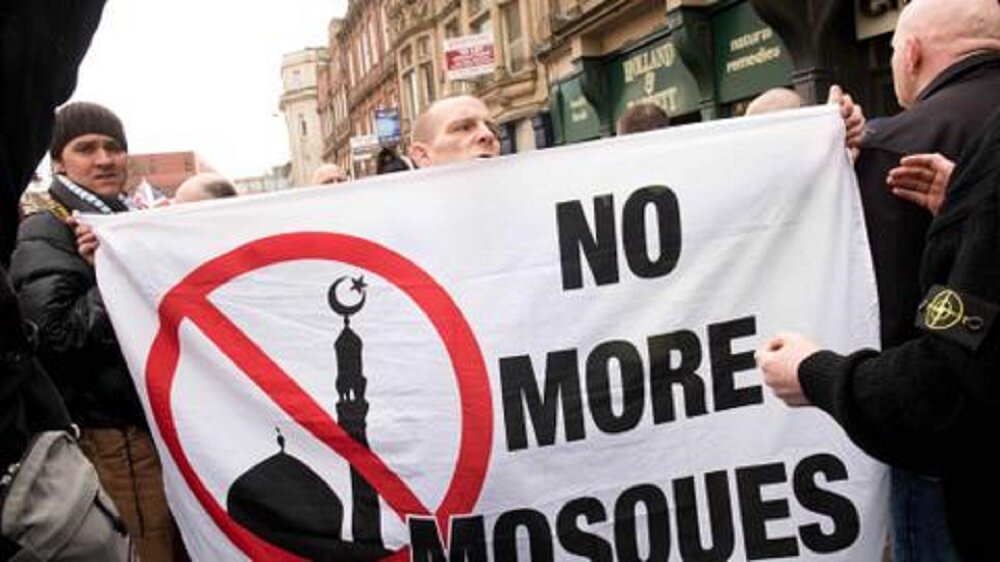Hawzah News Agency –A new report on Islamophobia in Europe has warned that hate crimes against Muslims in the continent have "worsened, if not reached a tipping point," over the last two years.
The pandemic resulted in relatively fewer physical attacks on Muslims and their places of worship, but that didn't result in less hate speech. Instead, according to the authors, there was an increase in online hate speech, which has longer-term implications for how Islamophobia is tackled across the continent.
Enes Bayrakli, one of the report's co-authors, described the increase of online abuse directed at Muslims as a "significant trend."
"This is worrying because online narratives don't stay online and can create a climate for physical attacks to occur in the real world," said Bayrakli speaking to TRT World.
A report in 2020 looking at online trends of Islamophobia found ubiquitous examples of fake news, which included themes that Muslims were super-spreaders of Covid-19, that mosques were covid vectors or that pandemic rules were applied more leniently towards Muslims out of fear of being accused of racism.
Such fake news stories represented an intersection and a development in narratives against Muslims that are common themes amongst Islamophobes.
Mainstream media outlets also contributed to the idea of linking images of Muslims to the pandemic and therefore legitimising negative tropes about Muslims and the pandemic.
Another important feature of this year's Islamophobia report is the cover image depicting the French President Emmanuel Macron.
When asked why this was significant, Bayrakli said that "Macron has become the face of institutional and structural Islamophobia in Europe. His policies are directly targeting, discrimination and criminalising Muslims in France."
There are few countries in Europe where Islam and Muslims face as much scrutiny as they do in France.
"There are of course other politicians in Europe who are following the same policies as France," says Bayrakli, but France is applying "Islamophobic practices at the state level in dealing with their Muslim minorities," he added.
This week alone saw two mosques attacked in France against a backdrop of rising anti-Muslim rhetoric from the countries political establishment, which increasingly frames Muslims as the threat within.
France has closed down more than 17 mosques for violating vague "security laws" or not having the right "safety standards" in the last two years. An additional 89 mosques are also under surveillance.
According to this year's report on Islamophobia, France's systemic pressure on Muslims has resulted in unprecedented "increasing number of police searches, threats of eviction, as well as mosques and school closures, including the dissolution of a humanitarian NGO and a human rights organisation defending Muslims in France against racism and discrimination."
When put together these actions, the report warned, "threatened the fundamental freedoms of Muslims."
Other findings in the report
While in many countries in Europe, Islamophobic crimes went down, according to this year's Islamophobia report, Germany bucked the trend.
More than 901 Islamophobic crimes were committed across Germany in 2020, 146 of which targeted mosques and 48 of which targeted people. At the same time, anti-Muslim social movements organised their rallies despite the pandemic.
The report criticised many European states for failing to report Islamophobic incidents as a separate category of hate crime.
"The recording of anti-Muslim/Islamophobic crimes by the police as a separate category of hate crime is essential to uncover the real extent of this problem and to develop counter-strategies to combat it."
Muslims in Austria also faced another difficult year, with hate crimes more than doubling to 812 reported incidents.
According to the report, the Muslim community in Austria has also faced another challenging year.
Earlier this year, Austrian civil society groups came out strongly against a "state-directed racist and Islamophobic campaign", which saw authorities raid countless Muslim homes in 60 raids in November of 2020.
The raids were carried out at the behest of the then country's right-wing Interior Minister, Karl Nehammer, resulting in heavily armed forces violently breaking into homes early in the morning.
The government hailed the raids as a success. However, the lack of results has cast doubt on the aim of the raids in a country that has increasingly seen an increase in anti-Muslim rhetoric.


Your Comment